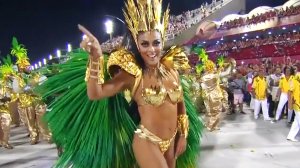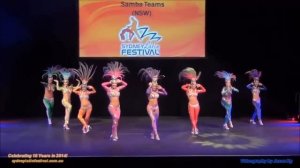
 1:04
1:04
2023-02-16 20:34

 4:00
4:00

 4:00
4:00
2024-01-27 22:17

 2:11
2:11

 2:11
2:11
2024-08-09 04:51

 1:55
1:55

 1:55
1:55
2025-08-04 00:15

 4:41
4:41

 4:41
4:41
2023-12-24 12:18

 3:24
3:24

 3:24
3:24
2025-08-02 05:45

 3:09
3:09

 3:09
3:09
2024-01-27 22:18

 3:24
3:24

 3:24
3:24
2024-06-09 14:13

 3:28
3:28

 3:28
3:28
2023-12-24 23:43

 3:44
3:44

 3:44
3:44
2023-12-27 18:03

 2:34
2:34

 2:34
2:34
2024-12-22 22:59

 4:27
4:27

 4:27
4:27
2023-07-13 13:39

 3:33
3:33

 3:33
3:33
2022-05-26 19:21

 5:59
5:59

 5:59
5:59
2023-09-20 04:11

 3:00
3:00

 3:00
3:00
2023-09-26 15:33

 3:24
3:24

 3:24
3:24
2023-09-09 19:57

 13:40
13:40

 13:40
13:40
2023-02-16 16:50

 3:28
3:28
![Дана Лахова - Одинокая луна (Премьера клипа 2025)]() 2:15
2:15
![MARSO - Дура (Премьера клипа 2025)]() 3:05
3:05
![Динара Швец - Новая история (Премьера клипа 2025)]() 3:45
3:45
![Ганишер Раззоков - Дилижон (Премьера клипа 2025)]() 3:46
3:46
![MIA BOYKA - А он такой (Премьера клипа 2025)]() 2:24
2:24
![Азиз Абдуллох - Аллохнинг айтгани булади (Премьера клипа 2025)]() 3:40
3:40
![MEDNA - Алё (Премьера клипа 2025)]() 2:28
2:28
![Zhamil Turan - Капали (Премьера клипа 2025)]() 3:08
3:08
![Женя Белоусова - Кто тебе сказал (Премьера клипа 2025)]() 3:27
3:27
![Игорь Крутой - Зонтик (Премьера клипа 2025)]() 4:00
4:00
![Рейсан Магомедкеримов - Забываю (Премьера клипа 2025)]() 3:20
3:20
![Артур Пирожков - ALARM (Премьера клипа 2025)]() 3:22
3:22
![Фаррух Хамраев - Отажоним булсайди (Премьера клипа 2025)]() 3:08
3:08
![W24 - I Gotta Feeling]() 3:49
3:49
![Фати Царикаева - Стамбул (Премьера клипа 2025)]() 2:57
2:57
![Ольга Сокурова, Ислам и Карина Киш – СИ ГУГЪАПlЭ (Премьера клипа 2025)]() 3:20
3:20
![Мария Зайцева - Жаль моя (Премьера клипа 2025)]() 4:25
4:25
![Жалолиддин Ахмадалиев - Тонг отгунча (Премьера клипа 2025)]() 4:44
4:44
![МАРАТ & АРНИ - Стала женой (Премьера клипа 2025)]() 3:51
3:51
![Любовь Попова - Прощай (Премьера клипа 2025)]() 3:44
3:44
![Богомол | Samagwi (2025)]() 1:53:29
1:53:29
![Углубление (2025)]() 2:07:52
2:07:52
![Фантастическая четвёрка: Первые шаги | The Fantastic Four: First Steps (2025)]() 1:54:40
1:54:40
![Белоснежка | Snow White (2025)]() 1:51:27
1:51:27
![Откровения | Revelations (2025)]() 2:02:28
2:02:28
![Только ты | All of You (2025)]() 1:38:22
1:38:22
![Бастион 36 | Bastion 36 (2025)]() 2:04:58
2:04:58
![Школьный автобус | The Lost Bus (2025)]() 2:09:55
2:09:55
![Дьявол | Diablo (2025)]() 1:31:20
1:31:20
![Моя мертвая подруга Зои | My Dead Friend Zoe (2024)]() 1:42:40
1:42:40
![Актер | The Actor (2025)]() 1:38:13
1:38:13
![Никто 2 | Nobody 2 (2025)]() 1:29:27
1:29:27
![Бабули | Nonnas (2025)]() 1:54:10
1:54:10
![Кирпич | Brick]() 1:40:58
1:40:58
![Блиц | Blitz (2024)]() 2:00:30
2:00:30
![Ночная сучка | Nightbitch (2024)]() 1:39:36
1:39:36
![Тот самый | Him (2025)]() 1:36:20
1:36:20
![Мир юрского периода Возрождение | Jurassic World: Rebirth (2025)]() 2:13:53
2:13:53
![Опустошение | Havoc (2025)]() 1:47:26
1:47:26
![Пойман с поличным | Caught Stealing (2025)]() 1:46:45
1:46:45
![Тодли Великолепный!]() 3:15
3:15
![Команда Дино Сезон 1]() 12:08
12:08
![Поймай Тинипин! Королевство эмоций]() 12:24
12:24
![Крутиксы]() 11:00
11:00
![Оранжевая корова]() 6:30
6:30
![Минифорс. Сила динозавров]() 12:51
12:51
![Последний книжный магазин]() 11:20
11:20
![Школьный автобус Гордон]() 12:34
12:34
![Приключения Пети и Волка]() 11:00
11:00
![Чуч-Мяуч]() 7:04
7:04
![Команда Дино. Исследователи Сезон 1]() 13:10
13:10
![Зебра в клеточку]() 6:30
6:30
![Пип и Альба. Приключения в Соленой Бухте! Сезон 1]() 11:02
11:02
![Зомби Дамб]() 5:14
5:14
![Панда и Антилопа]() 12:08
12:08
![Тайны Медовой долины]() 7:01
7:01
![Отважные мишки]() 13:00
13:00
![Ну, погоди! Каникулы]() 7:09
7:09
![Кадеты Баданаму Сезон 1]() 11:50
11:50
![Сборники «Умка»]() 1:20:52
1:20:52

 3:28
3:28Скачать видео
| 432x232 | ||
| 640x360 | ||
| 856x480 | ||
| 1280x720 |
 2:15
2:15
2025-10-22 14:16
 3:05
3:05
2025-10-17 11:37
 3:45
3:45
2025-10-15 10:45
 3:46
3:46
2025-10-14 11:30
 2:24
2:24
2025-10-14 12:10
 3:40
3:40
2025-10-18 10:34
 2:28
2:28
2025-10-21 09:22
 3:08
3:08
2025-10-22 14:26
 3:27
3:27
2025-10-16 11:15
 4:00
4:00
2025-10-18 10:19
 3:20
3:20
2025-10-16 11:19
 3:22
3:22
2025-10-20 14:44
 3:08
3:08
2025-10-18 10:28
2025-10-12 18:28
 2:57
2:57
2025-10-15 10:54
 3:20
3:20
2025-10-15 10:27
 4:25
4:25
2025-10-17 11:28
 4:44
4:44
2025-10-19 10:46
 3:51
3:51
2025-10-16 11:41
 3:44
3:44
2025-10-21 09:25
0/0
 1:53:29
1:53:29
2025-10-01 12:06
 2:07:52
2:07:52
2025-02-18 18:05
 1:54:40
1:54:40
2025-09-24 11:35
 1:51:27
1:51:27
2025-06-25 22:36
 2:02:28
2:02:28
2025-04-25 00:41
 1:38:22
1:38:22
2025-10-01 12:16
 2:04:58
2:04:58
2025-04-26 17:36
 2:09:55
2:09:55
2025-10-05 00:32
 1:31:20
1:31:20
2025-06-25 14:54
 1:42:40
1:42:40
2025-05-16 16:49
 1:38:13
1:38:13
2025-04-09 20:04
 1:29:27
1:29:27
2025-09-07 22:44
 1:54:10
1:54:10
2025-06-20 15:43
 1:40:58
1:40:58
2025-08-03 10:48
 2:00:30
2:00:30
2025-01-18 21:22
 1:39:36
1:39:36
2025-01-01 23:55
 1:36:20
1:36:20
2025-10-09 20:02
 2:13:53
2:13:53
2025-08-09 11:00
 1:47:26
1:47:26
2025-08-02 13:33
 1:46:45
1:46:45
2025-10-02 20:45
0/0
 3:15
3:15
2025-06-10 13:56
2021-09-22 22:29
 12:24
12:24
2024-11-27 13:24
 11:00
11:00
2022-07-25 18:59
 6:30
6:30
2022-03-31 18:49
 12:51
12:51
2024-11-27 16:39
 11:20
11:20
2025-09-12 10:05
 12:34
12:34
2024-12-02 14:42
 11:00
11:00
2022-04-01 17:59
 7:04
7:04
2022-03-29 15:20
2021-09-22 22:45
 6:30
6:30
2022-03-31 13:09
2021-09-22 23:36
 5:14
5:14
2024-11-28 13:12
 12:08
12:08
2025-06-10 14:59
 7:01
7:01
2022-03-30 17:25
 13:00
13:00
2024-11-29 13:39
 7:09
7:09
2025-08-19 17:20
2021-09-22 21:17
 1:20:52
1:20:52
2025-09-19 17:54
0/0

